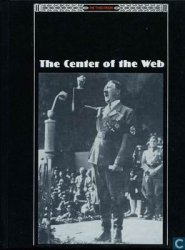The Protestant Ascendancy in Ireland was solidified by the defeat of the Catholic or Jacobite cause in 1691. Much of the natural Catholic leadership had taken advantage of the option offered by the Treaty of Limerick to follow King James in exile on the Continent, a pattern that would be continued for several generations among the young of the increasingly restricted Catholic aris-
Tocracy of Ireland. Those who departed, whose exile would be permanent, became known in history as the "Wild Geese."
The Catholics who did not opt for exile found themselves subject, in violation of the spirit as well as the letter of the Treaty of Limerick, to a series of laws that would be known as the "Penal Laws." That legislation was designed to ensure that Catholics remained the subjected underclass of the island. Catholics were denied the means of socioeconomic advancement, and distinct inheritance rules inhibited the preservation of any substantial Catholic holding. The process started with the meeting of the Irish parliament in 1692. There were no Catholics in attendance because of the application of the act governing the English parliament requiring members to take an oath repudiating significant Catholic religious doctrines.
Ironically, the Glorious Revolution, which had done so much to advance the position of the parliament in relation to the monarchy within England, did not advance self-governance in Ireland, even for the dominant Protestant minority. Poynings' Law still applied making the agenda of the Irish parliament dependent on approval of the royal council in England. One slight advance was a practice whereby the heads of prospective legislation could be sent by the Irish parliament to the royal council for their approval. However, when approved, it had to be either accepted or rejected in total without option of amendment by the Irish parliament. To the degree that an English monarch, who was also the king of Ireland, might be generously inclined to either the Catholic majority or the Ascendancy minority, he or she would have to contend with the less sympathetic attitude of the English parliament to either group in Ireland. Obviously, if a choice had to be made both the parliament and the monarchy would favor the Ascendancy, which had supported the Williamite cause against the Jacobites.
This was demonstrated by William's acceptance of the penal legislation, which contradicted the Treaty of Limerick, and even though he had Catholic continental allies in his struggle with Louis XIV. In 1695 he accepted the first of the Penal Laws, an act denying to Catholics, or "Papists," the right of a gentleman to bear arms for self-defense or for fowling. Other legislation forbade Papists from going abroad to be educated or to run schools in Ireland, where they had already been excluded from Trinity College. All this was in keeping with the aim to reduce the leadership potential of Catholics, who would not conform to the established church, and to keep them confined to peasant status. Within a generation or two, Catholics would be the "hewers of wood and the drawers of water," with leaders either in exile or having conformed. In 1697 William even accepted the Irish parliament's belated approval of a version of the Treaty of Limerick in which the clause favorable to Catholics that William had earlier sought to include was omitted. This paved the way for further penal legislation that would continue to be expanded until 1727. In the same year, Catholic bishops were banished from Ireland with the hope that in time there would be no one to ordain priests. In 1698 Catholics, other than those who had practiced under Charles II, were barred from the practice of law.
The penal spirit prevailed under William's successor, his sister-in-law, Queen Anne, the second daughter of James II, even though her lord lieutenant in Ireland, the duke of Ormond, was amenable to treating the Catholics more gen-
Erously. A 1703 act banished regular priests, that is, those who were members of religious orders, as well as bishops. However, the ordinary clergy were allowed to say Mass undisturbed if they would register and take an oath of allegiance. In 1704, in an effort to further reduce the socioeconomic position of Catholics, an act was passed that disallowed property owned by Protestants from coming into the hands of Catholics by sale or inheritance. Nor could Catholics take a lease on land for more than 31 years. Another act did not allow the English practice of primogeniture, whereby the eldest son automatically inherited an estate, to apply to Catholics. In their case the estate had to be divided equally among all sons, unless the eldest son would conform to the established church. Later legislation excluded Catholics from state office, the local corporations (town governments), the army, and grand juries, from having more than two apprentices in their trade, and, finally, in 1727, from voting for members of parliament even if otherwise entitled.
The non-Episcopal Protestants, especially the Presbyterians in Ulster, suffered some disabilities as well, but not to a degree as severe as the Catholics. Their clergy were not regarded as legitimate and the law did not recognize marriages performed by them. Like the Catholics, they had to pay tithes to the established church. However, their own clergy continued to receive the regium donum, or royal subsidy, under William. Then, during a period of strong sentiment against Dissenters in England in the reign of Queen Anne, that subsidy was ended and religious Dissenters were excluded from public office unless they would agree to take the sacraments in the established church. Unlike their nonconformist counterparts in England, Irish Presbyterians were too strong in their religious commitment to perform the requisite acts of "Occasional Conformity" to the established church. Consequently, they lost positions in parliament and in local boroughs. The sacramental test continued until the 1780s, although there were occasional indemnity acts allowing specific exceptions. One factor that moderated Ascendancy hostility toward dissenting Protestants was the realization that the Dissenters were as anxious as the Ascendancy to keep the Catholics in a secondary position.




 World History
World History









